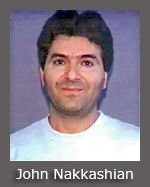![By General Artists Corporation-GAC-management. [Public domain], via Wikimedia Commons http://commons.wikimedia.org/wiki/File%3ADonAdams.jpg By General Artists Corporation-GAC-management. [Public domain], via Wikimedia Commons http://commons.wikimedia.org/wiki/File%3ADonAdams.jpg](https://www.exportlawblog.com/images/get_smart.jpg) Meet Charlie and Alice, two self-professed PRC spies who branched out from smuggling crystal meth into the United States to attempting to export airplanes and military technology from the United States to the PRC. Things did not turn out so well for Charlie and Alice who probably should have stuck with drug trafficking. So, find a comfortable chair, grab a bag of popcorn, and prepare to be entertained by the story that unfolds in the Criminal Complaint filed against them and to which they just pleaded guilty.
Meet Charlie and Alice, two self-professed PRC spies who branched out from smuggling crystal meth into the United States to attempting to export airplanes and military technology from the United States to the PRC. Things did not turn out so well for Charlie and Alice who probably should have stuck with drug trafficking. So, find a comfortable chair, grab a bag of popcorn, and prepare to be entertained by the story that unfolds in the Criminal Complaint filed against them and to which they just pleaded guilty.
It was a dark and stormy evening in Manila when a counterfeit cigarette smuggler introduced two undercover agents working for the United States to Hui Sheng Shen, a/k/a “Charlie,†and Huan Ling Chang, a/k/a “Alice.†According to Mr. Counterfeit Cigarette Guy, Alice and Charlie could help the UCs obtain methamphetamine.
Alice and Charlie, explaining to the UCs that email was insecure, set up a drop email account, gave the UCs the credentials for the account, and said that they should communicate via messages left in the draft folder. (This method is not particularly effective in hiding communications from the government when you’re dealing with undercover agents but, whatever, it’s the trendy spycraft du jour.) Using this method, a deal for a kilo of meth was consummated and shipped to the UCs in tea bags hidden in computer towers. (Of course, no customs inspector would ever be suspicious of tea bags in computer towers so this is yet another example of top notch spycraft by Charlie and Alice.)
Emboldened by their world-class narcotics deal, Charlie and Alice decided to move on to bigger things and just kinda casually dropped into a subsequent conversation with the UCs that they would, oh, by the way, like to buy a military aircraft. Because, naturally, guys who buy drugs normally have a warehouse of military aircraft that they can sell to the people they buy drugs from. Â And Charlie and Alice wanted not just any airplane but a honking huge E-2 Hawkeye reconnaisance aircraft. “Sure, Charlie, I’ll leave one for you at the front desk of your hotel after you wire me $100 million dollars.”
Of course, knowing the sensitivity of such an operation, Charlie and Alice wanted to refer to the Hawkeye in code as the “Big Toy.” That way, they could always claim, if caught, that they were really talking about a 12-ton toy Tonka truck. At this point, one of the UCs hits comedy gold when he says to Charlie and Alice:
“Do you guys realize what this thing is?.. . This thing is like a um 757 plane — it’s on aircraft carriers. Those things don’t just disappear.â€
Undeterred, Charlie and Alice still kept negotiating to buy the “big toy,” stating that their buyer, which they described as the “Chinese C.I.A.,” could afford it. The UCs, however, managed to steer them to something more manageable, something that could fit in a backpack, namely, a Raven RQ 11B UAV. Charlie and Alice explained that they could smuggle the UAV out of the United States by having scuba divers or remote-controlled submersible vehicles carry the items to an off-shore Chinese ship. They also planned to get the manuals out by taking pictures of the manuals, deleting the pictures from the memory cards and then having their friends in China recover the deleted images.
There were, of course, two problems with the deleted image trick. First, everyone (even Customs) knows about it and can easily detect and recover deleted images on digital camera memory cards. Second, Charlie and Alice were arrested while taking the pictures.
For those who want to try at home the recovering deleted images trick, here’s a quick guide on how to do that.

 Posted by
Posted by  Category:
Category: 

![By U.S. Navy via http://www.navy.mil/view_image.asp?id=16778 [Public Domain] By U.S. Navy via http://www.navy.mil/view_image.asp?id=16778 [Public Domain]](https://www.exportlawblog.com/images/nssn_class_sub.jpg) Alper Calik — a Turkish citizen and co-owner of Clifton, New Jersey based Clifmax LLC — has been arrested based on a
Alper Calik — a Turkish citizen and co-owner of Clifton, New Jersey based Clifmax LLC — has been arrested based on a  A little over five years ago, we
A little over five years ago, we ![Stephen Su photo taken by CBP during U.S. transit in 2011 via http://www.cbc.ca/news/canada/british-columbia/su-bin-chinese-man-accused-by-fbi-of-hacking-in-custody-in-b-c-1.2705169 [Public Domain] Stephen Su photo taken by CBP during U.S. transit in 2011 via http://www.cbc.ca/news/canada/british-columbia/su-bin-chinese-man-accused-by-fbi-of-hacking-in-custody-in-b-c-1.2705169 [Public Domain]](https://www.exportlawblog.com/images/su.jpg)
![Mugshot of Sheriff Olaleran Mohammed [Fair Use] Mugshot of Sheriff Olaleran Mohammed [Fair Use]](https://www.exportlawblog.com/images/sheriff_mohammed.jpg)


